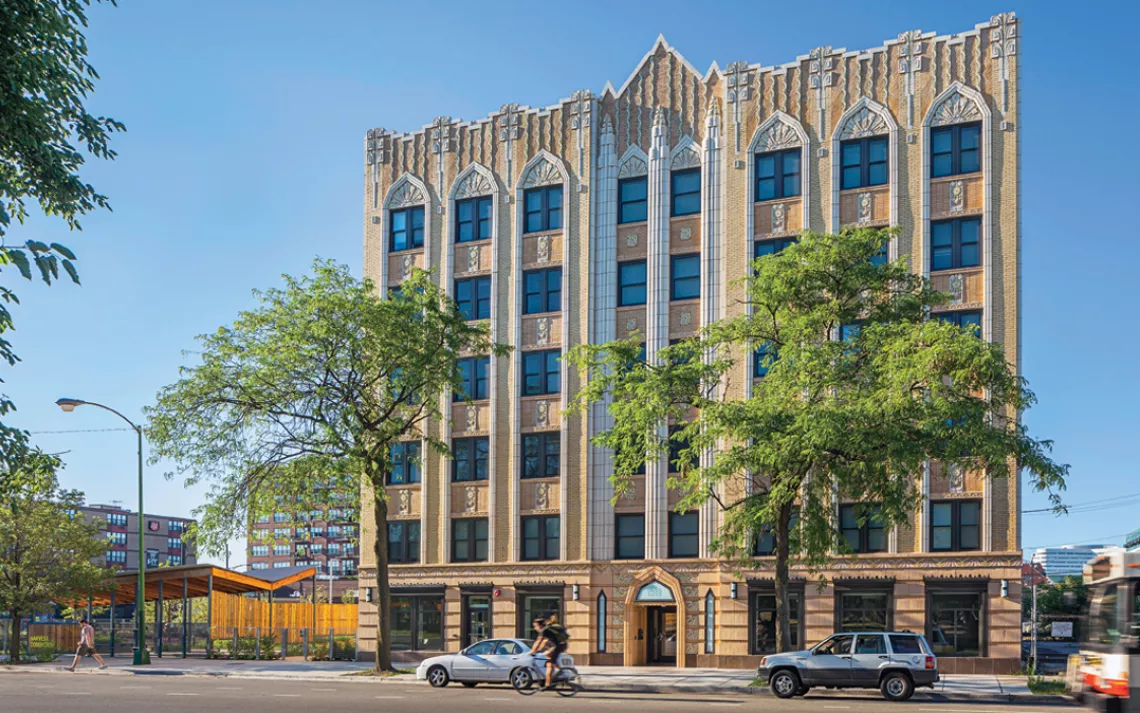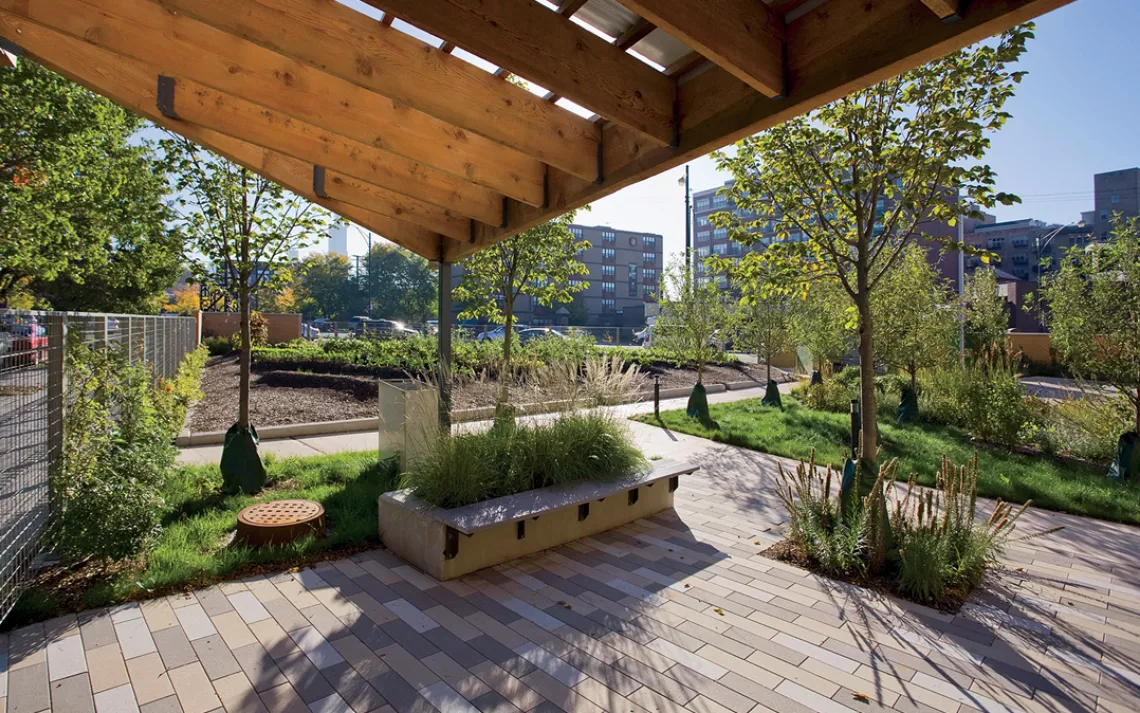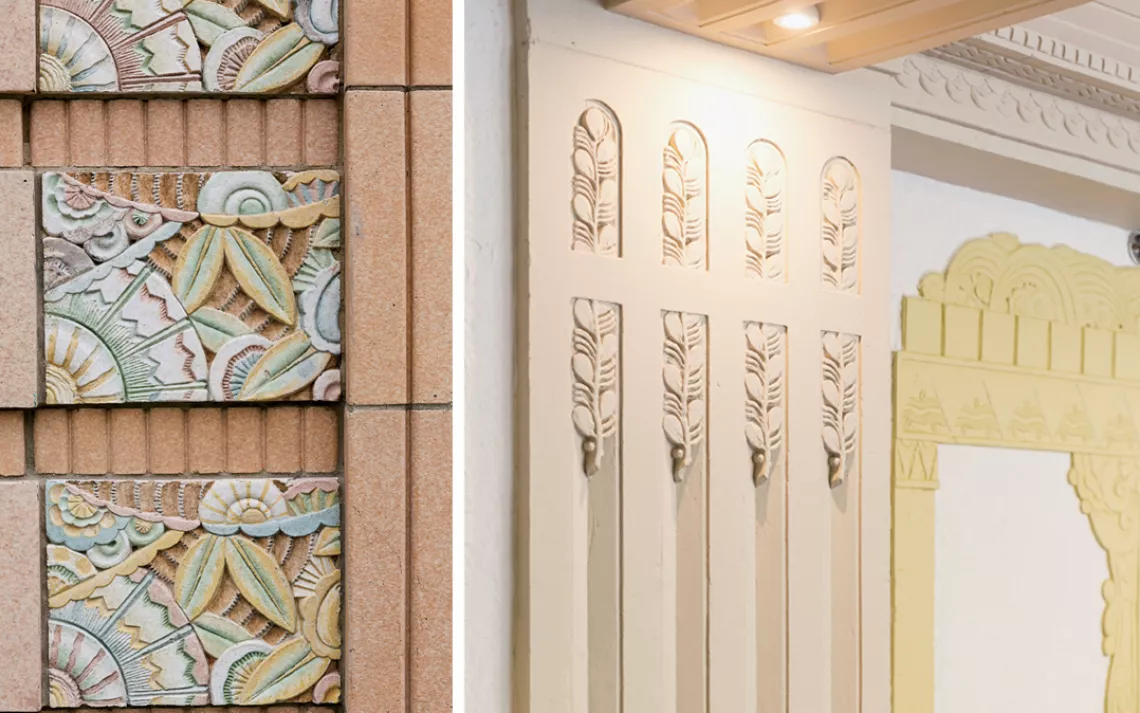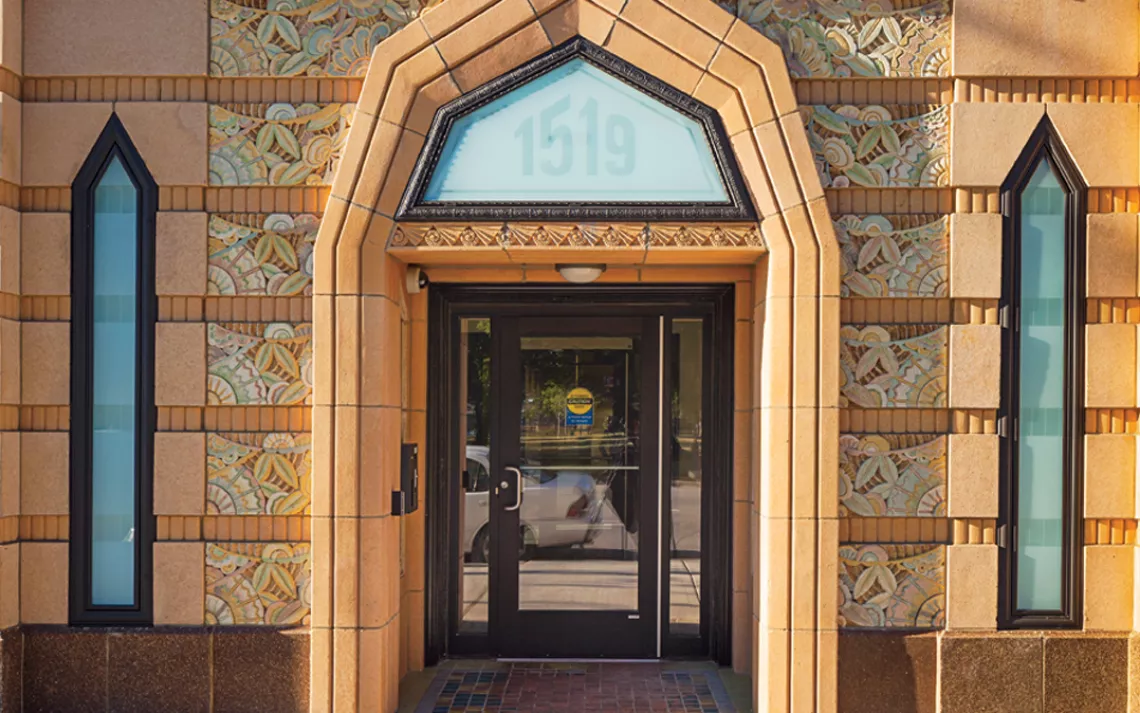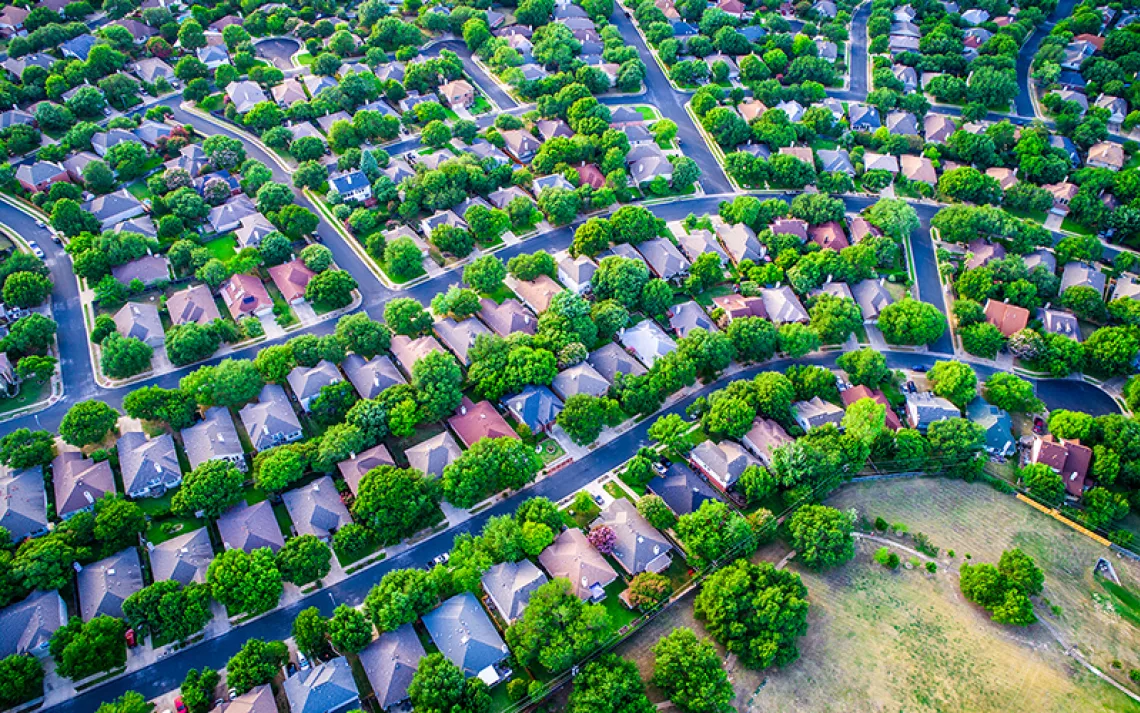A Historic Hotel Reborn For a Green Age
Deanna Young had never eaten Swiss chard before arriving at Harvest Commons in Chicago. She never even knew the leafy green existed. Today, she makes juice with it, along with other vegetables picked from the sizable urban garden conveniently located three floors below her studio apartment.
Young credits Harvest Commons for her turnaround. The formerly homeless 49-year-old diabetic takes advantage of the "supportive housing" facility's on-site case-management services as well as cooking classes in the commercial-grade teaching kitchen.
A former flophouse on Chicago's Near West Side, Harvest Commons has offered its 89 residents—most of whom have been homeless or incarcerated—a second chance. At the same time, developer Heartland Housing, a branch of the antipoverty organization Heartland Alliance, has rescued a historic landmark. The nonprofit meticulously restored the abandoned building's art deco terra-cotta exterior and interior arches, columns, and tile work.
Intentionally less visible are the sustainable amenities: An eight-panel solar thermal system produces hot water, and a green roof helps insulate the building and reduce stormwater runoff. In the parking lot, 13 wells tap into natural geothermal energy. Low-flow fixtures, superinsulation, recycled-content carpeting, and native landscaping contribute to Harvest Commons' green cred.
But it's the garden with raised beds and compost bins that captures the attention of most visitors. It's also favored by Young. "Whatever free time I have, I'm giving it to the garden," she says.
The patch of green produced 865 pounds of vegetables for residents last year. "We plan the garden cooperatively during a midwinter planning party," says Dave Snyder, program manager at Heartland Alliance. He, residents, and Harvest Commons' urban agriculture coordinator flip through seed catalogs together to decide what they want to grow. Egg-laying chickens and honey-producing bees round out the urban farm.
"It doesn't get more fresh or organic," Young says. "Words cannot express what this building means to me."
 The Magazine of The Sierra Club
The Magazine of The Sierra Club
